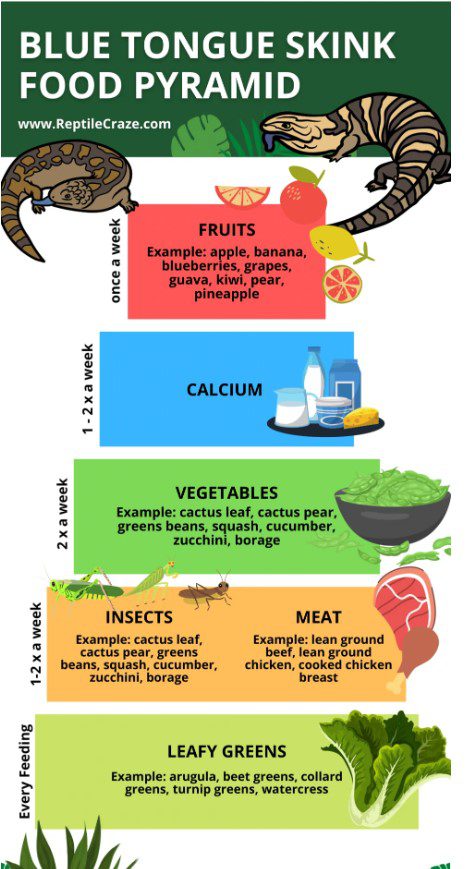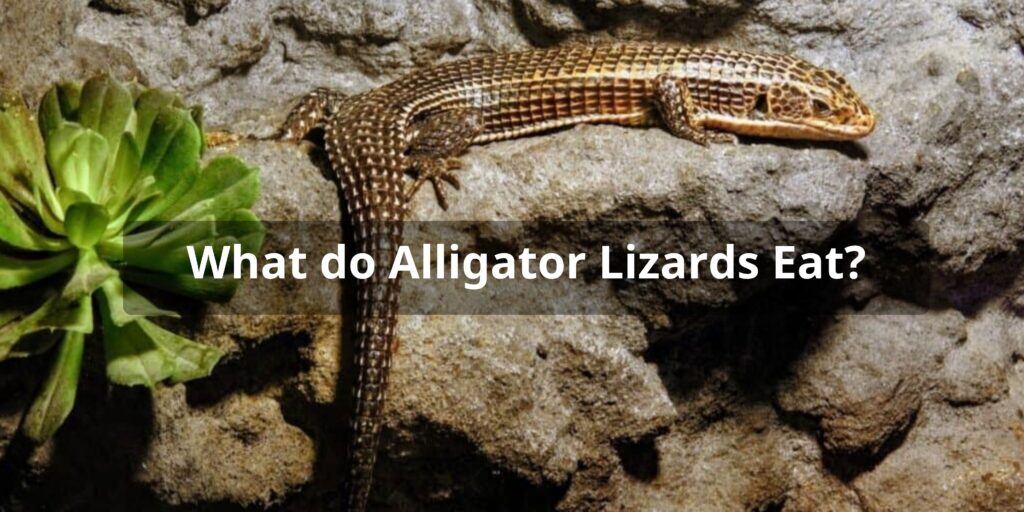Blue tongue skinks are fascinating reptiles known for their unique blue tongues and docile nature. As responsible owners, it is essential to understand their dietary requirements to ensure their health and well-being. This article will provide a comprehensive overview of the blue tongue skink diet, including their favorite foods, essential nutrients, and feeding guidelines.
Blue Tongue Skinks Diet Basics
- Blue tongue skinks have a diverse diet that consists of both insects and plant matter.
- The ideal ratio for their diet is approximately 50% insects and 50% plant-based foods.
- Young blue tongue skinks require more protein and should be fed insects more frequently than adults.
Essential Foods for Blue Tongue Skinks Diet

Preferred Live Food Options
- Crickets: An excellent source of protein and readily accepted by blue tongue skinks. They can be dusted with calcium powder before feeding.
- Mealworms: Another protein-rich option that can be provided as part of their diet. However, moderation is key due to mealworms’ high-fat content.
- Dubia Roaches: These roaches are highly nutritious and have a good calcium to phosphorus ratio, making them a suitable choice for blue tongue skinks.
- Silkworms: Rich in protein and low in fat, silkworms offer a healthy live food option for these reptiles.
- Grasshoppers: A natural prey item for blue tongue skinks, grasshoppers provide essential nutrients and variety in their diet.
Safe Vegetables for Regular Intake
- Collard greens: High in calcium and vitamin K, collard greens are a staple in the blue tongue skink diet.
- Mustard greens: Another leafy green rich in nutrients, mustard greens can be offered regularly.
- Squash: Yellow squash and zucchini are well-tolerated by blue tongue skinks and provide hydration and dietary fiber.
- Bell peppers: A colorful addition to their diet, bell peppers offer vitamins A and C.
- Sweet potatoes: Cooked sweet potatoes can be mashed and offered as a nutritious treat.
Recommended Fruits for Blue Tongue Skinks Diet
- Blueberries: These antioxidant-rich fruits can be sliced into small pieces and offered occasionally.
- Papaya: Rich in vitamin A and natural enzymes, papaya is a beneficial fruit for blue tongue skinks.
- Strawberries: Another fruit that can be fed in moderation due to its high sugar content, strawberries provide vitamin C.
- Mango: A tropical fruit enjoyed by blue tongue skinks, mangoes offer various vitamins and minerals.
Essential Vitamins & Minerals
- Calcium: Crucial for maintaining strong bones and preventing metabolic bone disease, calcium should be provided regularly. It can be dusted onto live insects or mixed with their food.
- Vitamin D3: Necessary for proper calcium absorption, blue tongue skinks can obtain vitamin D3 from natural sunlight or supplements.
- Multivitamin Supplements: These supplements help ensure a balanced intake of essential vitamins and minerals. They should be used sparingly to avoid over-supplementation.
Foods to Avoid for Blue Tongue Skinks
- Insects with hard exoskeletons (e.g., beetles): These can be difficult for blue tongue skinks to digest and may cause impaction.
- Toxic plants: Avoid feeding blue tongue skinks any plants known to be toxic to reptiles, such as lilies, daffodils, or azaleas.
- Citrus fruits: The high acidity of citrus fruits can upset the digestive system of blue tongue skinks. It’s best to avoid them.
- Spinach and rhubarb: These vegetables contain oxalates that inhibit calcium absorption, so they should be avoided.
Feeding Guidelines for Blue Tongue Skinks Owners
- Offer a variety of food items to ensure a balanced diet.
- Adjust the food ratio based on the age and size of your blue tongue skink.
- Dust live insects with calcium powder before feeding.
- Provide fresh, clean water at all times.
- Monitor their weight and adjust the feeding frequency accordingly.
- Avoid overfeeding and obesity by following portion control guidelines.
- Consult a veterinarian or reptile specialist for personalized dietary advice.
Understanding Blue Tongue Skinks Hydration Needs
Blue tongue skinks require access to fresh water at all times. A shallow dish or water bowl should be provided in their enclosure. Spraying the enclosure with water can also help maintain proper humidity levels, as these reptiles may obtain some moisture through their skin.
Conclusion
Understanding the dietary needs of blue tongue skinks is essential for their overall health and longevity. By providing a well-balanced diet consisting of live insects, safe vegetables, and recommended fruits, you can ensure that your blue tongue skink thrives. Remember to avoid harmful foods and follow the feeding guidelines to promote their well-being. Withproper care and attention to their diet, your blue tongue skink will enjoy a happy and healthy life as your reptile companion.
FAQs About Blue Tongue Skink Diet
How often should I feed my Blue Tongue Skink?
Blue Tongue Skinks should be fed every 2-3 days. Younger ones might require more frequent feedings. Adjust based on their age, size, and activity level. Monitor their weight to ensure they’re not under or overweight.
Can Blue Tongue Skinks eat fruits and vegetables?
Yes, Blue Tongue Skinks can eat a variety of fruits and vegetables. Offer leafy greens, vegetables like squash and sweet potatoes, and limited fruits. Focus on a diet rich in vegetables for balanced nutrition.
What are the main components of a Blue Tongue Skink’s diet?
A Blue Tongue Skink’s diet should consist of high-quality protein sources like insects, snails, and eggs. Leafy greens, vegetables, and occasional fruits contribute to their nutritional needs.
Is a varied diet important for Blue Tongue Skink health?
Yes, a varied diet is crucial for Blue Tongue Skink health. A diverse range of foods ensures they receive essential nutrients and helps prevent dietary deficiencies.
Should I provide supplements for my Blue Tongue Skink’s diet?
Yes, supplements are important. Dust their food with calcium and vitamin D3 supplements to prevent metabolic bone disease. Multivitamin supplements can also be given occasionally.
Are there any foods that Blue Tongue Skinks should avoid?
Avoid feeding Blue Tongue Skinks high-fat and high-sugar foods. Limit fruits due to their sugar content. Avoid citrus fruits and toxic plants. Oxalate-rich vegetables like spinach should be offered sparingly.


